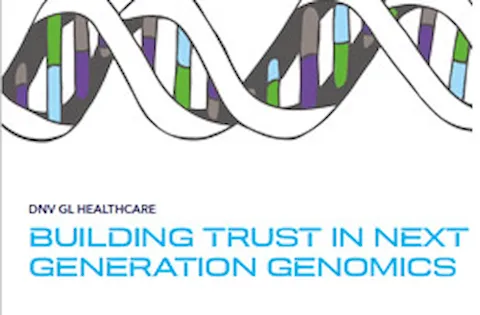Customizing medical treatment for the individual patient
Precision medicine
Sometimes, it is difficult to diagnose diseases. If you are ill, and your symptoms don’t fall into the known categories, doctors will need time to understand what’s the matter and how to treat you. But what if they could work faster?
Modern big data analytics solutions hold the potential to speed up the process and provide faster diagnosis and more precise treatment.
The development of precision medicine aims at enabling the offering of precise and effective treatment of each individual’s disease. Precision medicine holds the potential to change how we treat patients and how healthcare services are delivered. More precise medical treatment can mean higher recovery rates and less side-effects of treatment.
“Precision medicine is a medical model that proposes the customisation of healthcare, with medical decisions, practices, or products being tailored to the individual patient. Customisation of medicine to individuals means taking into account all relevant sources of information, from biomarkers to social attributes.”
Source: Wikipedia
How to make precision medicine possible
Recent developments in technologies like informatics, biomolecular science, gene sequencing and medical imaging increasingly allow tailoring of clinical decisions, practices and products to the individual patient.
Beyond offering treatment based on averages from controlled studies, the patients can receive treatment based on experiences from the treatment of similar patients. This approach is achieved by collecting large amounts of data, from biomarkers to environmental factors, making them available for analysis and bringing the synthesis to the point of care.
Precision medicine is not just a technical venture, it also challenges traditional workflows in healthcare. Smart organization of knowledge and data is necessary for providing effective and safe healthcare services as the amount of new knowledge exceeds the individual capacity of clinicians and healthcare providers.
The necessary infrastructure must be developed to facilitate all aspects of data capture, analysis and application, including sharing and secondary use of data. Financial incentives must be adjusted to promote investments on all levels that provide an overall positive socio-economic effect, and the regulatory framework must be updated to balance healthcare outcomes with privacy risk in the current and future technological setting.
The transition towards precision medicine requires involvement of and contributions from a broad range of stakeholders, including politicians, practitioners, patient groups, academia and industry. In order to involve all these in the development and implementation of new solutions and smarter ways of working, there is a particular need for the establishment of secure platforms that can give external partners controlled access to de-identified data.
DNV’s engagement in precision medicine
DNV has an engagement to improve safety and quality in healthcare. Working to enable precision medicine in clinical work contributes to this goal.
DNV's Precision Medicine team works with partners to build trust through process and data assurance, data governance, and the facilitation of secure sharing of data, to enable the successful implementation of precision medicine in clinical practice.
Over the past few years, DNV has contributed knowledge and expertise into several research projects, next-generation sequencing and even precision medicine prototypes to enable better and secure sharing of data between healthcare institutions.
Explains Bobbie Ray-Sannerud, programme director for the healthcare programme in DNV Group Technology and Research (GTR):
“The transition of Next-Generation sequencing (NGS) technology from research to diagnostics in the clinic is a process which has proven difficult. Misunderstanding key results or limitations can lead to incorrect therapeutic decisions, directly impacting patient safety. The precision medicine program at GTR has the mission to act as a key component in building DNV’s credibility and acceptance in the wider digital health space by developing knowledge, technologies, and business models that contribute to the safe and sustainable clinical implementation of precision medicine to improve the quality of care for the benefit of patients.”
Big Data in Medicine
Hence, DNV has been involved in the Big Data in Medicine (BigMed) project together with Oslo University Hospital and other academic and industry partners. The project aims to promote development, technology and services with advanced computer science, and to lay a foundation for implementing precision medicine and big data analytics in healthcare through ICT solutions.
BigMed has dedicated a work package to genomics and data sharing. As part of this work, DNV has worked with project partners to develop the Trusted Variant eXchange (TVX) demonstrator. The TVX enables labs to manage and quality control their variant classifications. They can share these classifications, and the evidence behind them, with trusted partners in a secure environment, while maintaining control of their data. TVX continuously tracks discordances in classifications, and alerts labs to these events.
Nordic Alliance for Clinical Genomics
DNV is also one of the founding partners and secretariat for The Nordic Alliance for Clinical Genomics (NACG), an independent, non-governmental, not for-profit association with the mission to work together to learn from each other to lift performance standards. NACG has the aim at responsible sharing of trustworthy data for improved diagnosis and treatment, and as a resource for research. The latest outcome of this initiative is a report on clinical reporting of NGS data.
Want to learn more about the foundational work DNV and partners are doing on to enable precision medicine in healthcare?
12/14/2018 1:13:12 PM


